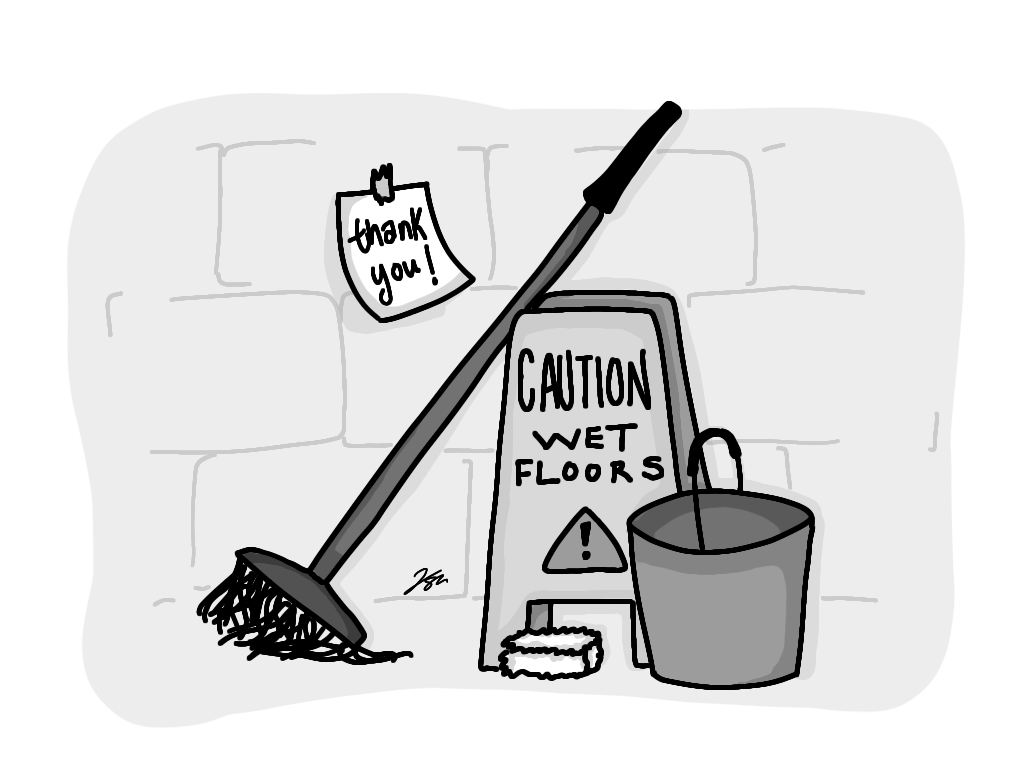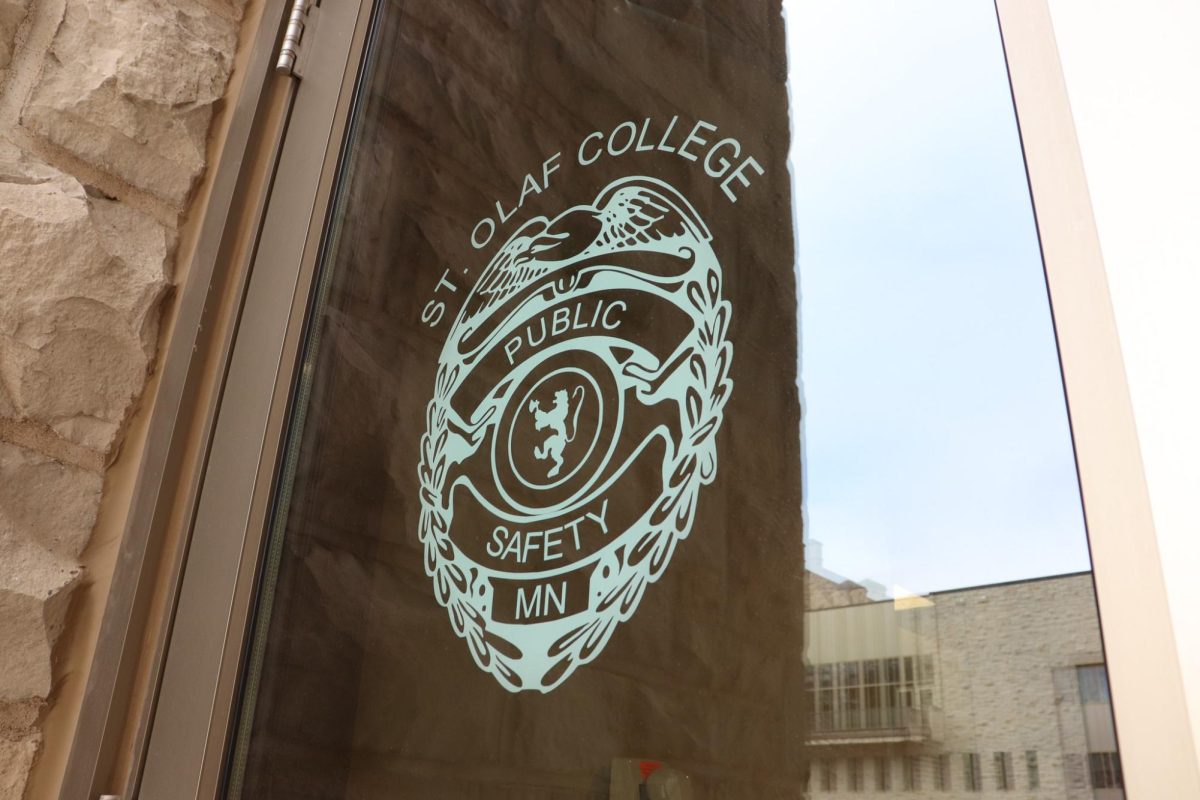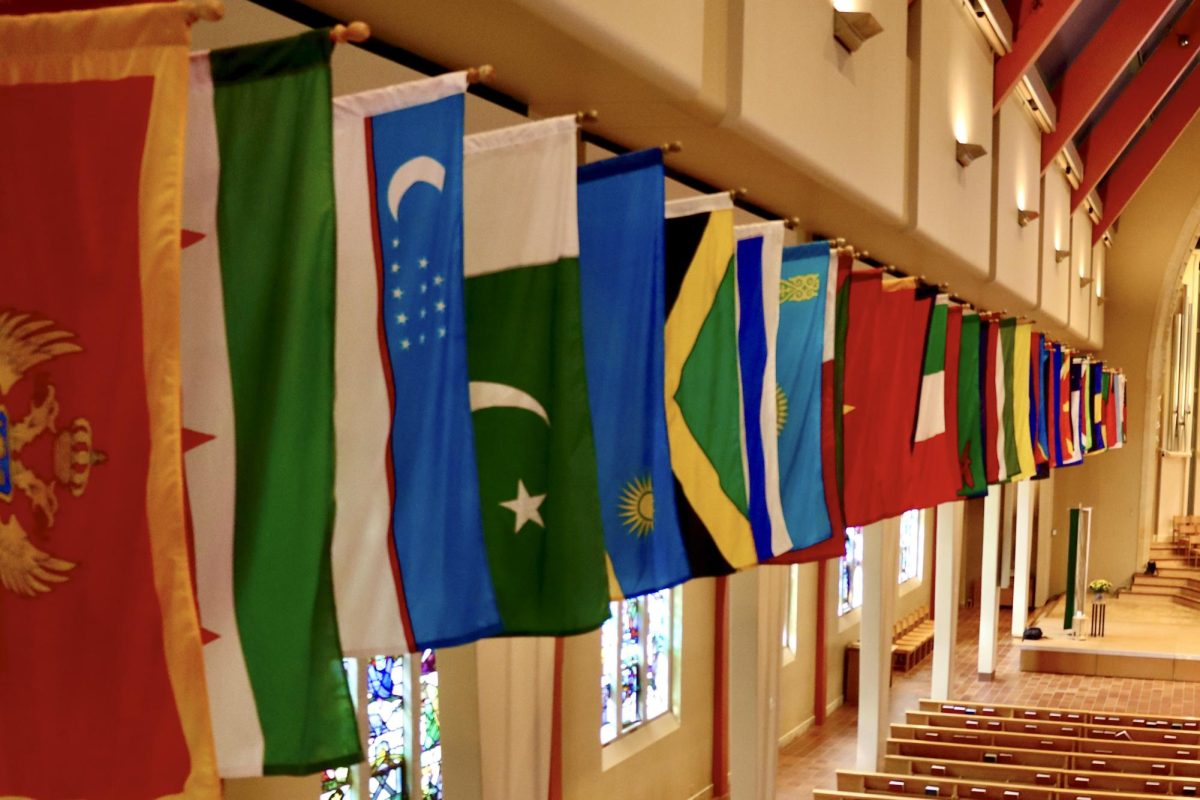On Thursday, Oct. 17, St. Olaf Cancer Connection SCC put on its annual Breast Cancer Panel. The event, which took place in the Trollhaugen room in Buntrock Commons, was held in honor of Breast Cancer Awareness Month. SCC President Emily Olson ’14 and Co-Vice Presidents Kelsey Mullen ’14 and Jackie Rath ’14 introduced a panel of St. Olaf parents who discussed their experiences as breast cancer survivors and caregivers.
The event began with an attempt to show a TED talk by cancer biology researcher Kristi Egland, who uses her own breast cancer cells in her efforts to develop a blood test for breast cancer detection. Although technology glitches prevented SCC from showing the clip, Olson recommended the video as an inspiring showcase of a survivor who acknowledges her struggle with her disease and uses the strength she gained from the experience in her work.
Dana Lamb, mother of Brittani Lamb ’14, and Kristen Kemp, mother of Sarah Kemp ’14, spoke on the panel as breast cancer survivors. They were joined by Chuck Rath, father of Jackie Rath ’14, who shared his experience as a caregiver for his wife during her struggle with breast cancer.
While both Lamb and Kemp are in remission after battles with cancer, Kemp described the experience as the “kind of thing that never really goes away.” They each talked about their appreciation for the huge amount of support they received from family, friends and fellow churchgoers during their illnesses and said that learning to accept help from others proved invaluable to maintaining good spirits and hope.
Rath began by professing his awe for survivors of breast cancer and shared with the group the challenges he faced as caregiver for his wife. Though his “world was rocked” by the diagnosis, he said that the experience was not completely negative. Their struggles brought their family closer together and made them appreciate the small things in life.
All three panelists responded to a student’s question about how their experiences with illness affected their faiths. They said that, while they could have blamed God for their suffering and lost their religions completely, their faiths were instead strengthened, and they often felt God “in their corner” during the trying time. Lamb mentioned receiving a prayer shawl from her church that she wore during treatment, which reminded her of the support she received throughout her time as a cancer patient.
In response to a question from an audience member interested in pursuing a career in medicine, the panelists discussed how medical staff should treat cancer patients. While a warm and comforting bedside manner is important in improving the experience of a patient, they said that being funny is just as crucial. The panelists claimed that finding humor in a difficult situation does wonders in terms of improving morale and making a patient feel comfortable. The experience, they said, does not need to be completely negative.
With regard to dealing with the illness of a family member or friend, the panelists said that everyone should be allowed to deal with their grief differently. Not everyone can be a caregiver, which does not make their support any less important. Also, while patients should not always be bothered with the trivial, everyday problems of their family, they should not be completely left out of their family’s lives.
The panelists effectively captured the common struggles inherent in dealing with breast cancer and also gave hope by focusing on the positive outcomes of their journeys. The sign near the door to Trollhaugen for the American Cancer Society bearing the inscription “Celebrating Survivors!” aptly describes the tone of the evening, which was meant to be inspiring rather than depressing.
SCC has several more events planned for the semester: The Lungstrong 5K will take place on Nov. 3, and the annual gift drive for pediatric patients will occur in December. St. Olaf’s annual Relay for Life will take place again in the spring. These events are ways to both increase awareness of and work toward a cure for this disease. Such efforts can, as the panelists said, truly make a huge difference in the life of a breast cancer patient, caregiver or survivor.





